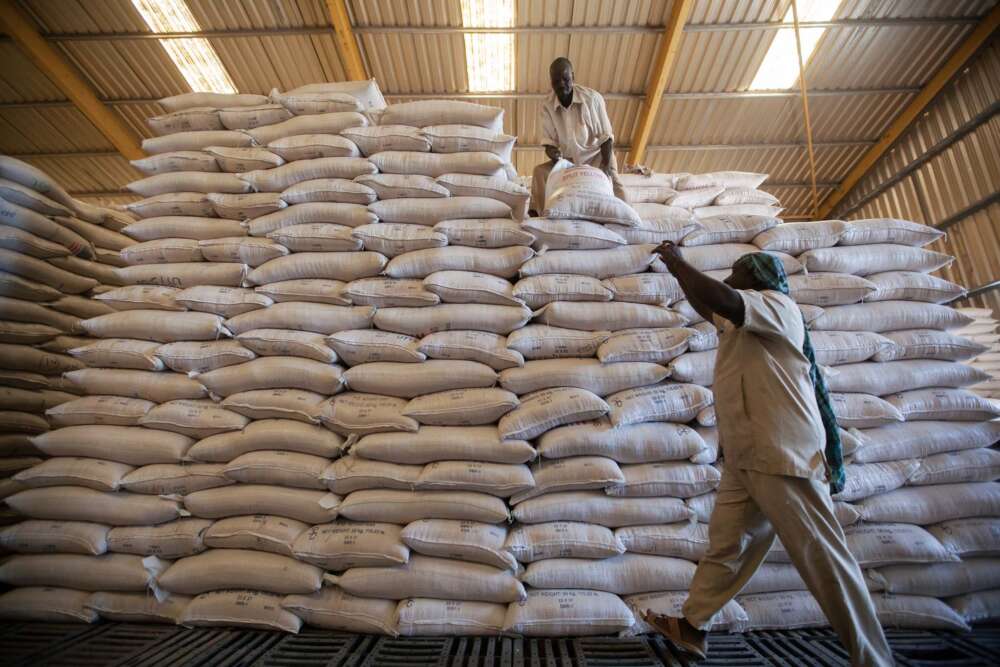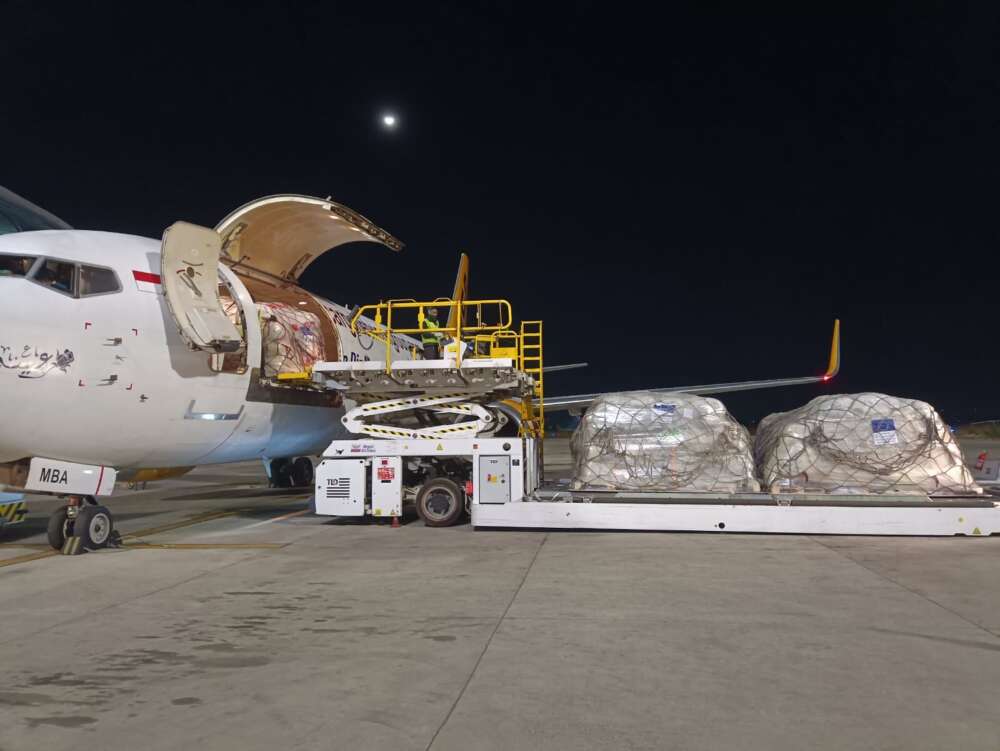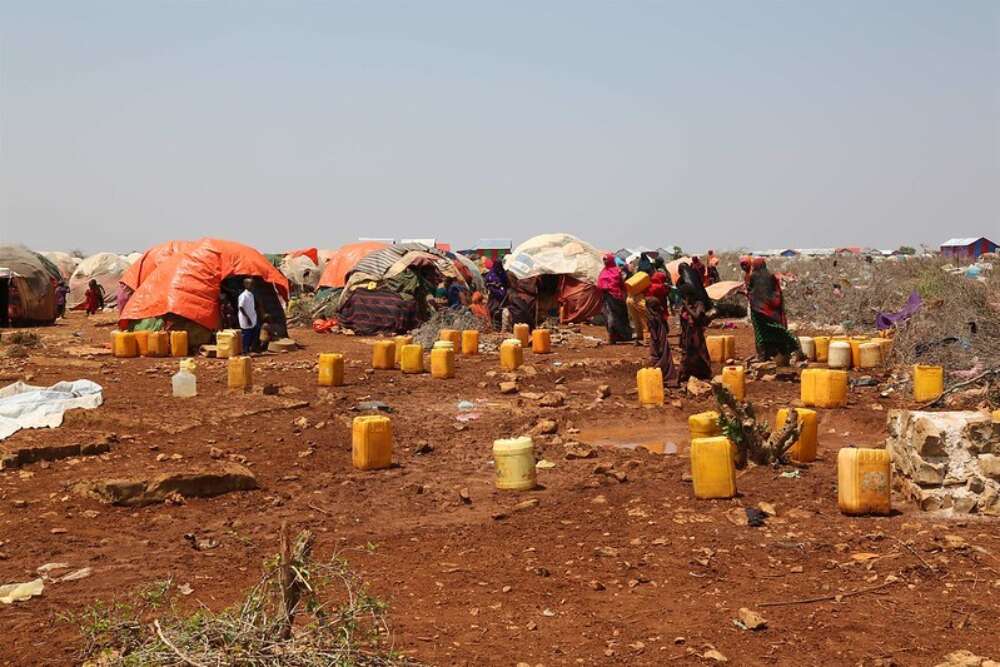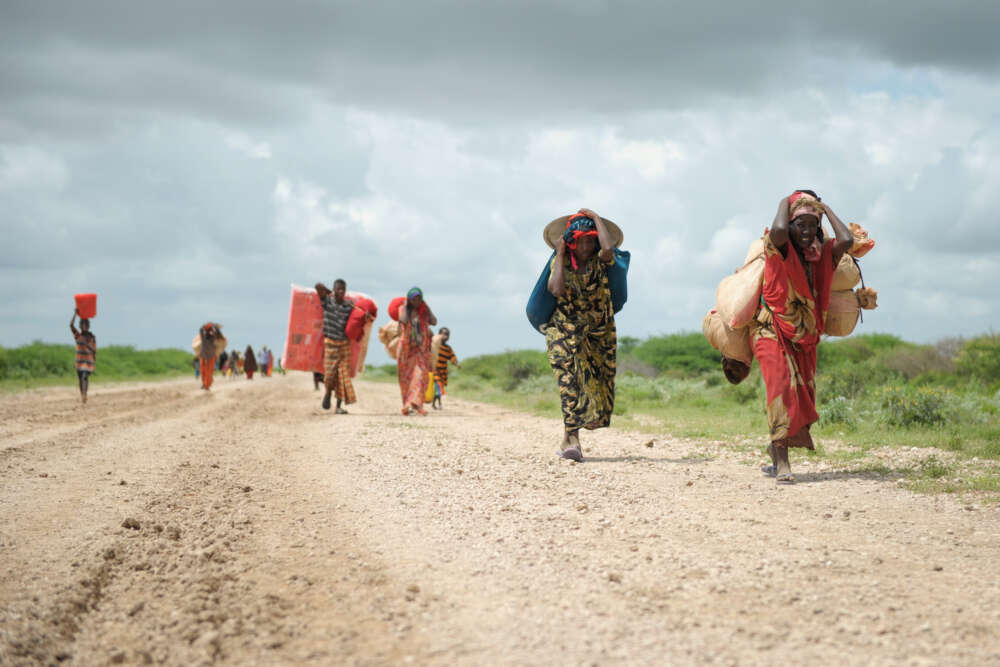Preventing Crises, Creating Prospects, Protecting People
Report by the German Commission on the Root Causes of Displacement
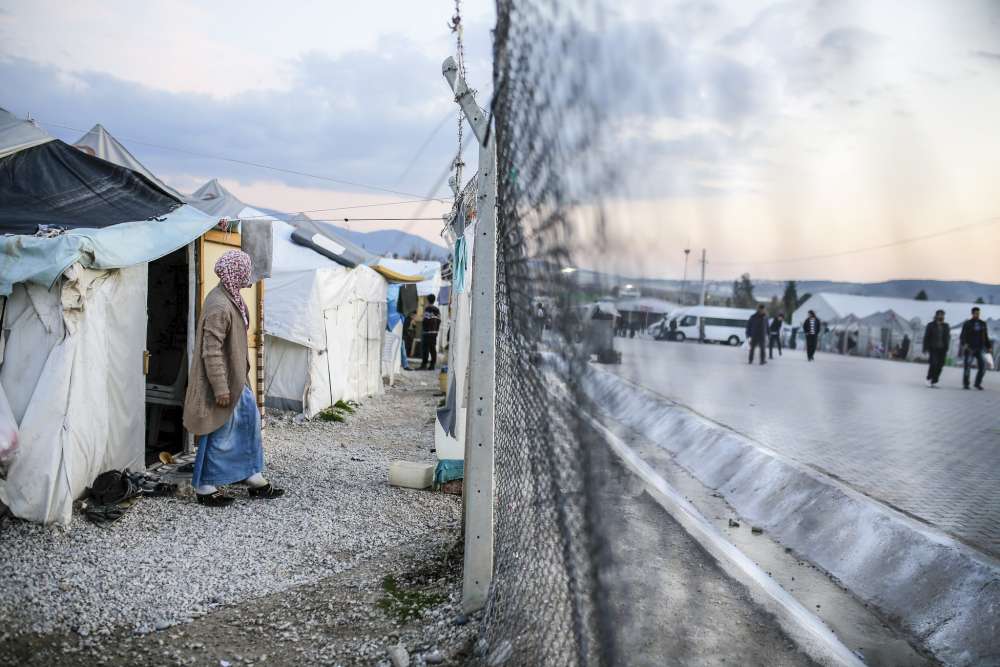
The independent Commission on the Root Causes of Displacement was mandated by the German government in July 2019 to identify the main causes of displacement and irregular migration and to develop approaches for effectively mitigating them. In its report, the Commission presents recommendations for Germany’s future activities at the national, European and international levels to the German government and the German parliament (Bundestag). This summary outlines the findings of the first chapters of the report and concludes with 15 key recommendations to be prioritized in the upcoming legislative term.
War, persecution, hardship or a lack of prospects are the most familiar causes of displacement, and are often cited by those seeking protection as the reason for their flight. However, there is often more than just one reason why people leave their home regions or countries.
The following figure provides an overview of the key drivers of displacement and irregular migration, which are usually linked by complex interdependencies. Conflict and persecution, failing governments and institutions, poverty and a lack of prospects are factors that are for the most part direct triggers of displacement and irregular migration. Other issues with an aggravating effect, such as the impacts of climate change or the demographic pressure in many developing countries, are triggers that are mainly indirect. In addition to these primary causes of displacement and irregular migration, there are other factors influencing the route and the destination country chosen, such as smuggling networks and a lack of protection and reintegration systems in countries of transit and origin, which may trigger further migratory movements.
There is no clear hierarchy as to the reasons why people feel forced to leave their home countries or regions. The Commission therefore rejects any approaches that focus on a single reason and instead proposes an array of measures that aim to tackle the root causes of displacement and irregular migration in a comprehensive and coherent manner.
The number of refugees has been growing for years, showing that the international community needs to scale up efforts aimed at mitigating the root causes of displacement. Between 2010 and 2019, the number of refugees who fall under the mandate of the United Nations High Commissioner for Refugees (UNHCR) or have been recognized by other countries as refugees almost doubled, increasing from 10.5 million to 20.4 million people. This increase is primarily due to a few crisis hotspots (Syria, South Sudan, Myanmar, Venezuela). There are also protracted conflicts causing displacement, for instance in Afghanistan. Moreover, the number of internally displaced persons trying to escape conflict and seeking refuge inside their own countries saw a considerable increase between 2010 and 2019, going from 24.9 to 45.7 million people. In addition, a number of people – quite how many exactly is hard to estimate – are forced to leave their home regions because of natural disasters.
The large majority of these people do not try to reach the European Union (EU). Instead they become internally displaced persons within their own countries or seek refuge in neighboring countries. After a sharp increase in irregular entries into the EU via the Mediterranean up until 2015, the numbers have since declined, also as a result of more restrictive border policies and mobility restrictions in connection with the COVID-19 pandemic. Any projections about where, when and how many people will decide to migrate and which destinations they will choose are subject to a high level of uncertainty. It is, however, safe to assume that the economic and social impacts of the COVID-19 pandemic will further exacerbate the structural drivers of displacement and irregular migration.
1. Preventing crises and resolving conflicts: The German government should enhance its strategic capability in order to prevent crises more effectively and to resolve existing conflicts. Violent conflicts are a central cause of displacement. However, options for intervention are usually limited as conflicts are becoming more and more complex and increasing numbers of actors are involved. Two examples illustrating this point are Syria and Afghanistan, the two countries that the most refugees in Germany come from. With its guidelines “Preventing Crises, Resolving Conflicts, Building Peace” adopted in 2017, the German government has established a framework for its political engagement in this field. Drafting clear and coherent strategies for individual conflicts and implementing them using a comprehensive approach remains a central task, however.
In concrete terms, this means that the German government should pool and expand existing analytical capacities. In order to enhance its strategic processes, it should set up a “Council for Peace, Security and Development” that involves independent institutions and civil society in exploring and identifying possible options for action. Moreover, Germany should strengthen its role in implementing civil approaches for crisis prevention and conflict resolution by enhancing its capacities for mediation and humanitarian diplomacy. Arms exports and security cooperation initiatives should be examined carefully so as to stop them exacerbating conflicts further or increasing the risk of human rights violations.
2. Securing livelihoods and creating new opportunities for development: The German government should work towards improving the overall conditions for national development and prospects for individuals in current and potential countries of origin of refugees and irregular migrants. It should support state institutions and local administrations in providing basic services for all and give more attention to inclusive urban development. A particular focus should be on sustainable food security, quality education and health systems and on building and strengthening social protection systems. The German government should also promote sustainable economic development and greater diversification in the industrial and service sectors, putting special emphasis on favorable conditions for investment, vocational training and fair trade relations.
3. Halting climate change and coping with its impacts in a spirit of solidarity: The German government should take ambitious steps to advance climate action and environmental protection in Germany and worldwide. Climate change is exacerbating water scarcity, extreme weather events and the extinction of species, jeopardizing agricultural production and negatively affecting the livelihoods of many people.
It can also exacerbate conflicts of use and, together with other factors, become a driver of displacement and irregular migration. Industrialized and emerging countries have a special responsibility in the climate crisis: they are the biggest emitters of greenhouse gases but poorer countries are particularly affected by the negative consequences. The German government should develop a mechanism with which to provide significant support, on top of climate protection in- vestments in Germany, for climate change mitigation measures in developing countries and emerging economies (“climate matching”). These measures should be aimed at encouraging the further development and implementation of the respective national climate change mitigation targets and the use of renewables. In addition, Germany should provide targeted support to the most vulnerable countries, helping them to adapt to changed climatic conditions, cope with damages and losses that have already occurred, and protect themselves against future climate risks. Moreover, the German government should lobby for the international community to recognize climate-induced displacement and support the people affected, for example through regional protection agreements and climate passports.
4. Supporting displaced persons and host countries: The German government should not only try to alleviate acute hardship but also seek to identify long-term solutions for people who have already been forced to leave their home countries. Possible solutions include voluntary repatriation, integration in the host country, resettlement or an otherwise secured transfer to third countries. The German government should support host countries by way of multi-annual compacts. At the same time, it should take in more refugees via orderly resettlement procedures and, to that end, forge an alliance with like-minded states. Right now, a relatively small number of countries receive the bulk of global refugees. The international community has so far failed to provide sufficient support to host countries, despite the commitments made in the Global Pact on Migration and Refugees in 2018.
The German government should also make internal displacement more of a political focus and contribute to mitigating its impacts, because the people concerned often do not have the same rights as their fellow citizens who are not affected by displacement. That is one of the reasons why the internally displaced of today are often the refugees of tomorrow.
5. Managing German and European refugee and migration policy in a humane and coherent manner: The German government should urgently work towards designing its migration, asylum and refugee policy in such a way as to ensure that refugees and irregular migrants are treated with dignity. This is not just a matter of human decency; it is also necessary in order to give Germany credibility when calling on other countries to comply with international standards. The German government should step up its existing efforts to ensure compliance with the law at the EU’s external borders and on EU territory. In addition, it should strengthen legal migration routes, both by creating safe refugee routes and by expanding labor and education migration. It also needs to do more to promote return in order to reduce incentives for irregular migration, and, in particular, invest in voluntary return and reintegration. All this will only be possible if the German government makes an effort to build fair partnerships with other countries.
In order to achieve these five goals, the government will need not only to demonstrate its political will but also to ensure sufficient, multi-annual, flexible and targeted funding. The Commission calls on the German government to scale up its funding for mitigating the root causes of displacement and irregular migration and to support countries that are particularly affected. It expressly encourages the government to merge its financing instruments and procedures and make them more effective.
The recommendations put forward in this report focus on the international dimension of displacement and irregular migration. Implementing the recommendations will require close collaboration with the European Union, with partners and with countries of origin and host countries worldwide, as well as with regional and international organizations.
Read the full report and recommendations.
This report was originally published by the Commission on the Root Causes of Displacement in May 2021.


